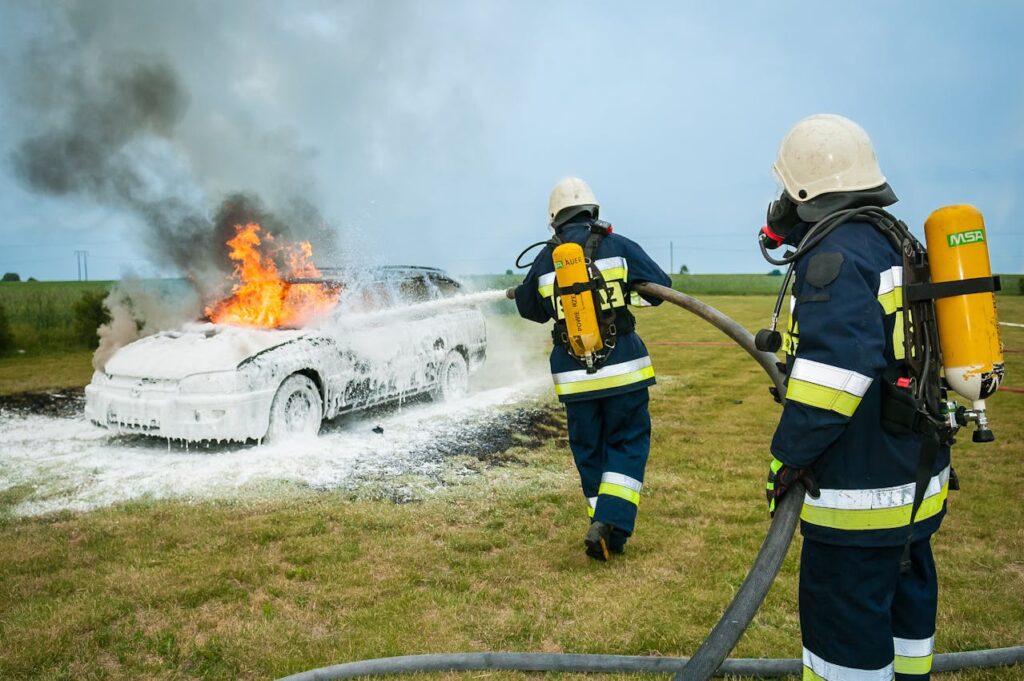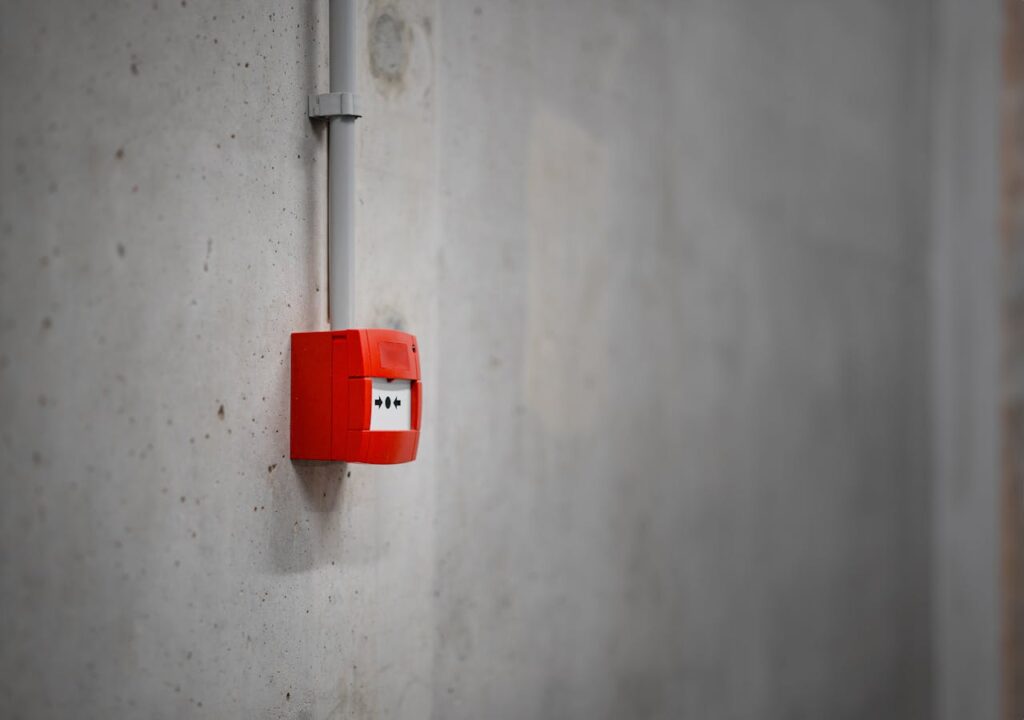In business, a perfectly normal day can give way to a crisis at any moment, and that’s why we think ahead with a crisis communications plan.
Maybe someone’s had an accident, your secure database of client data has been compromised, a member of staff said something in error, someone is involved in a scandal, or a nasty rumour is doing the rounds on social media.
In business, crises can come in all shapes and sizes. But, in the same way that a company can take steps to avoid many crises from happening, they can also take steps to ensure they protect their reputation when a crisis does occur.
What is a crisis communications strategy?
When you’re faced with a crisis – something that has the potential to do serious harm to your reputation, it’s not easy to deliver a calm, comprehensive, well-articulated and circulated response. This is especially the case if you’re not across the situation, you’ve not thought things through and if you don’t really know what to do. So if a journalist were to push a microphone toward you and ask for your comments, you’d probably be toast.
A crisis communications plan gives you the tools you need to make the best of any bad situation, outlining what you should do and how you should do it so you don’t have to think on your feet. it means that when a crisis looms, everyone knows what they have to do – from the receptionist who handles an enquiry to the director who delivers the response, all thanks to a strategy that was created days, weeks or months ago.

How to create a crisis communications plan
The principle behind a crisis comms plan is that it’s best to plan in peacetime. Adrenaline might make you faster, stronger and more likely to win a fist fight (maybe), but it also makes you stupid because you’re not thinking clearly.
If you know your business, you’ll be able to anticipate almost every possible reputational crisis, and that means you can create perfectly planned response for each scenario so you’re ready if and when you’re ever faced with that problem.
A well planned, drafted and tested crisis comms strategy will enable you to focus on running your business, with peace of mind. You can be confident that everything is being done to protect your reputation and no-one has to panic when the heat is on.
How to prepare for a crisis
When we create a crisis comms plan with a client, we arrange a meeting with the head of marketing, the PR team that’s working on the account and potentially the managing director or CEO of the company. There may be a few additional people needed at the meeting depending on the company’s structure but these core people will typically be the most appropriate figures to form the company’s new ‘crisis comms team’.
You’ll need a list of contact details for each person who needs to be on the crisis comms team, including out of hours contacts so that each member of the team can contacted in an emergency if needed. This lays the groundwork for the first step in any crisis which is that any member who becomes aware of a crisis should contact the other members of the team as soon as possible to notify them of the issue and to remind them of the next steps that need to be taken.
Once the team is assembled, we would then get the team to list everything that could possibly damage the company’s reputation and what publicity problems could pop up without warning.
These meetings aren’t as as doom-and-gloom as they might sound; it’s easy to lighten the mood in the meetings as you challenge the team to imagine every awful thing that might happen. Everything can be considered – from an unhappy client taking to social media to a state-sponsored cyber attack or modern slavery in a supply chain.
Another crucial step at this point in the process is to get the inside information on any known threats to the company’s reputation and any known problems that could become crisis in future. For total transparency, it’s important that everything in the meeting will be discussed in confidence so that the crisis comms team can be prepared for every skeleton that might come out of a company’s closet. This can also be a good opportunity for the company to resolve any problems that are brought to light so that the risk is eliminated going forward.
Once all of these possible crises are listed, the next step is to consider and discuss the best ways of dealing with each of them.

Planning your crisis response
Every company has a different way of communicating and presenting itself to its customers and to the public and so when considering how to respond to each crisis, it’s important to bear this in mind and make sure the other members of the team are aware of the company’s own style.
Understanding the voice of the company and how its target audience perceive it goes a long way in determining how it should respond to a crisis: The light-hearted tone of KFC or Innocent Smoothies gives them a secret weapon that can help them disarm potential crises but they should also know when they need a more serious response.
Equally, a company that’s built a reputation for professionalism and sobriety wouldn’t dream of cracking a smile about even the slightest problem. Knowing their voice and how customers perceive them is what enabled KFC to conquer a crisis with their magnificent ‘FCK bucket’ after all.
As we discuss the reactions for each of the scenarios we’ve listed, we’d decide what would be stated and how we’d communicate our messages, with what we’d say or do when the crisis first emerges and what we’d do if the crisis escalated.
Not every crisis would warrant a written statement being sent to all target media. Some situations would be better handled with press conferences, live interviews for broadcast media, social media posts and emails to customers or a combination of all available platforms.
Plotting a reaction for each scenario takes time and it requires the specialist knowledge and attention to detail that only the PR team can provide, so it does require time and attention to detail to plan out a strategy, but once it’s done, you have a solid framework in place for the future.
Getting your crisis comms ready
Normally, the PR team would write up a series of template responses for each scenario. Whether they’re tweets, emails to customers or media statements, everything would be written up with only the details of the exact nature of the crisis to be added or updated if and when the situation occurs.
Once these are written, we would then present these to the other members of the crisis comms team who would amend or approve each of the statements, assigning a spokesperson for each one if appropriate who would also sign off the templated statement or quote.
Hopefully, these responses will never need to be used, but they’re ready and waiting just in case and they’d be saved on a secure cloud server so they can be easily accessed should they ever be needed.
For situations where an interview or press conference would be required, we would provide coaching for the appropriate spokespeople in advance so they have the confidence to represent the company during a difficult situation and put the right message across to the media.
The final step is to write up a straight-forward set of instructions for people at different levels throughout the company. The members of the crisis comms team will have a set of step-by-step instructions of who needs to do what in each of the pre-planned scenarios while others in the company need to know that if they ever become aware of a crisis, they should contact a member of the crisis comms team as soon as they can.
This document would also tell employees how to engage with the media if and when they contact the company about a crisis and, typically, this would mean identifying the nature of the call, obtaining their contact details and recording the time when they got in contact and then to sharing this with the media or crisis comms team. Crucially, they must never say anything which could be construed as a response from the company.
Once that’s done, we wait hope that these excellent crisis plans will never be put into action.

Putting the crisis comms plan into action
Of course, as the saying goes, whatever can go wrong will go wrong, but when the proverbial hits the fan in future, everyone can stay calm because everything is in place for the situation to be handled smoothly and effectively.
We’ve had our share of crisis scenarios and we’re pleased to say that each time, our crisis communications plans have proved invaluable. Staff members knew what they needed to do, they informed the marketing team as they should have done, and they alerted the crisis communications team and together, we handled the situation without any difficulty
Because of this, our client was able to respond to the crisis, control the narrative, give their clients the correct information and protect the brand’s reputation. The whole crisis was resolved without any negative headlines and no-one needed to panic.
Creating a crisis comms plan can seem like a daunting task but as soon as the plan is prepared and tested, it’s a vital line of defence for a company’s reputation.

Contact us today if you’d like to hear more about our crisis comms support.

